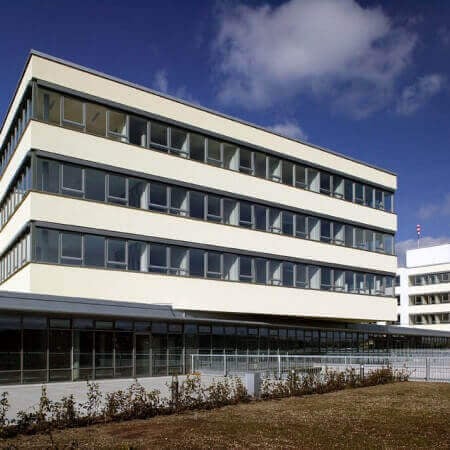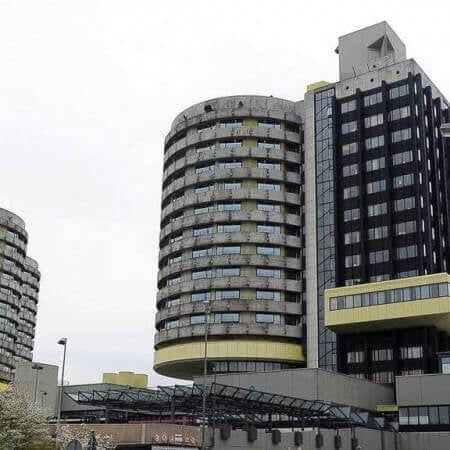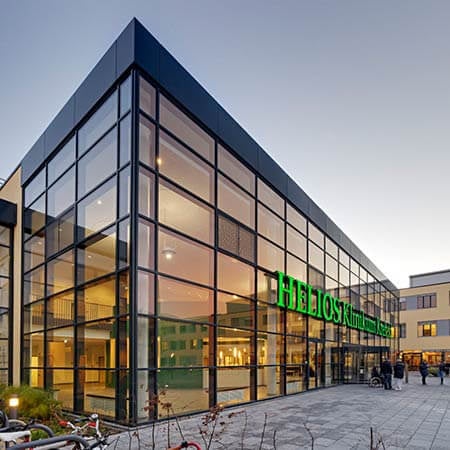Doctors in Germany perform many operations and minimally invasive procedures to eliminate an anal fistula once and for all, while maintaining normal defecation and urination. Whenever possible, doctors in German medical centers perform single-stage operations in order to shorten the duration of treatment for their patients. In many cases, an anal fistula can be cured with minimally invasive procedures, which provide reliable results and a short postoperative recovery period. To undergo your diagnostics and treatment of anal fistula in Germany, you are welcome to use the Booking Health service.
Content
- Surgical treatment
- Laser therapy FiLaC
- Video-assisted treatment
- Stem cell therapy
- Fibrin glue
- Fistula plug
Anal fistula treatment involves the use of surgical operations, laser procedures, fibrin glue, fistula plugs, and video-assisted treatment.
You can undergo your treatment in the following hospitals: PAN Clinic Cologne, University Hospital of Ludwig Maximilian University of Munich, or Beta Klinik Bonn.
Please leave your request on the Booking Health website, and we will take care of the organization of your trip to Germany. The Booking Health specialists will help you to choose a clinic and a treatment method, make an appointment, help you apply for a visa, get you to the clinic, and provide medical insurance. You will communicate with the doctors of the clinic through an interpreter, and you can also contact your personal coordinator 24/7 for any organizational or everyday issues.
Surgical treatment
Below are some operations that can be performed for anal fistula treatment:
- Fistulotomy is a procedure for fistula dissection. This option is the main method for anal fistula treatment.
- Fistulectomy is the complete removal of a fistula. This technique is rarely used in developed countries, because it is traumatic and, at the same time, no more effective than a well-performed fistulotomy.
- Ligation can be combined with a fistulotomy or used as a main treatment option. The procedure provides drainage of the fistula and its healing. Threads that are inserted into the canal gradually cut through the fistula, so it can be used without a fistulotomy.
- Mucosal flap transfer (FLAP technique) can be used for chronic high fistula, it is often used in the same situations that ligation is.
- Ligation of intersphincteric fistula tract (LIFT) is a new operation that was first performed in 2007. This method is effective in 75% of cases, and with a proper selection of patients, the efficiency reaches 100%, with the full preservation of the sphincter.
Laser therapy FiLaC
The use of a laser in the treatment of anal fistulas was first performed in 2011. This new sphincter-preserving technique uses a FiLaC laser emitting probe by Biolitec, Germany. It destroys the epithelium of the fistula and, at the same time, overgrows the remaining fistulous tract.
The main reason for the failure of a conventional surgery is the presence of a fistulous tract or remnants of the epithelium that have not been excised. These shortcomings are not typical of FiLaC. The radial radiation of the laser probe removes the fistula epithelium and granulation tissue completely.
The intervention involves closing the internal opening with an anorectal flap. Doctors also use a new modified procedure that involves sealing the fistula with a laser, without the use of a flap.
The procedure is successful in more than 80% of cases. This treatment rarely causes any complications and contributes to a patient's rapid recovery.
Video-assisted treatment
Video-assisted anal fistula treatment (VAAFT) is performed using a kit that includes a fistuloscope manufactured by KARL STORZ GmbH (Tuttlingen, Germany), an obturator, a monopolar electrode, an endobrush, and 0.5 ml of synthetic cyanoacrylate glue (Glubran, GEM SRL, Viareggio, Italy).
The procedure was developed in 2006 and consists of a diagnostic phase followed by surgery.
At the diagnostic stage, the fistuloscope is inserted through the external opening and advanced, washing the fistulous tract with glycine and mannitol. The fistuloscope usually exits through the internal opening. Once the internal hole is found, 2-3 sutures are applied to isolate it.
At the next stage of the operation, the goal is to destroy the fistulous tract from the inside, scrape it out and close the internal opening. To do this, the electrode is replaced by an obturator from the outer hole under direct view. The wall of the fistula is cauterized. The inner hole is then sutured with a semicircular or linear stapler. When the tissue around the internal opening is too thick to be stapled, a skin or mucosal flap is formed. To strengthen the suture or staple line, 0.5 ml of synthetic cyanoacrylate glue can sometimes be applied.
The procedure is a success in 75% of patients. It is minimally traumatic and the results are usually reliable. However, the risk of complications is higher than with the laser procedure.
Stem cell therapy
Stem cells from the patient's adipose tissue are injected into the fistulous tract to ensure its rapid healing. This is not the main, but an additional procedure, which is usually combined with the application of fibrin glue.
Fibrin glue
This technique has been used since the 1990s. Glue is applied into the fistulous tract, which ensures its overgrowth.
The main advantage is that the procedure has a minimal risk of complications. But, in terms of its reliability, the method is inferior to other therapeutic methods. The risk of recurrence with the presence of fistulous tracts that are more than 4 cm is 11%, and with short fistulous tracts up to 4 cm, relapses occur in more than half of all patients.
Fistula plug
Plugging is another sphincter-preserving procedure that can be used in patients who are at a high risk of urinary incontinence or those with complex fistulas. Plugs are made from fibrin or other resorbable biological materials.
To place a fistula plug, doctors identify the internal and external openings of the fistula and insert a probe through them. The canal is then treated with a curette. The thread is pulled through the fistulous tract, and a plug is inserted through it. It is sutured to the internal mucosal orifice and internal anal sphincter so that the mucosa completely covers it, while the external fistula is left open for drainage.
In recent years, this method has rarely been used, since its efficiency is about 60%. It can sometimes be used for fistulas that have developed due to Crohn's disease.
If you are going to undergo your anal fistula treatment in one of the German hospitals, the Booking Health service will be very helpful. On our website, you can find the cost of treatment and make your treatment appointment at the best price. The Booking Health specialists will advise you, help you choose the most suitable clinics in Germany, and arrange your trip.
Authors:
This article was edited by medical experts, board-certified doctors Dr. Nadezhda Ivanisova, and Dr. Bohdan Mykhalniuk. For the treatment of the conditions referred to in the article, you must consult a doctor; the information in the article is not intended for self-medication!
Our editorial policy, which details our commitment to accuracy and transparency, is available here. Click this link to review our policies.
Sources:
Medical News Today
Verywell Health
The Lancet















